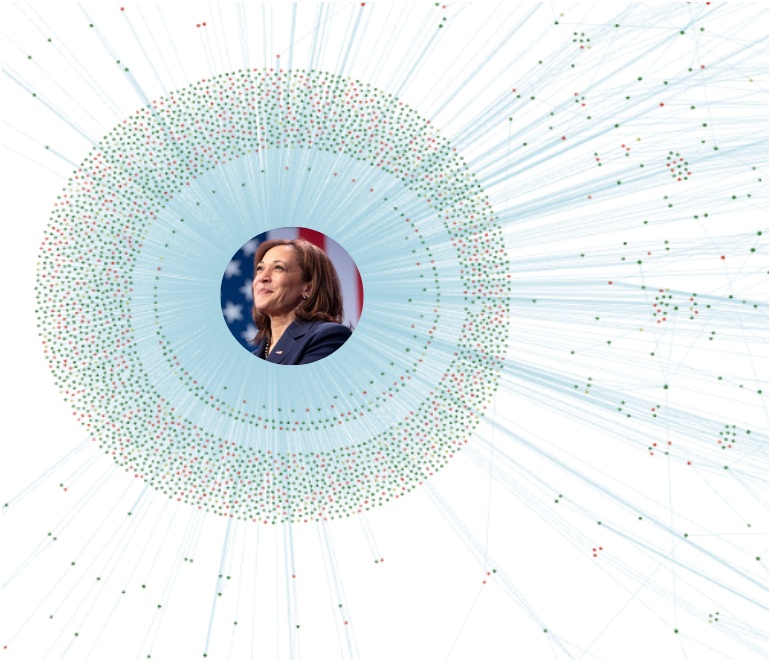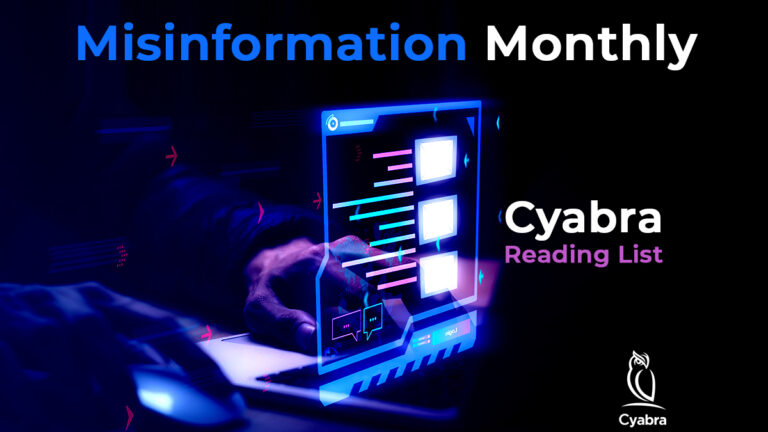Cyabra’s latest research reveals three coordinated disinformation campaigns surrounding Biden’s withdrawal from the 2024 Presidential race. Following his announcement on July 21, fake profiles have pushed their agendas by harnessing the online narrative and manipulating the conversation.
TL;DR?
- 2 fake coordinated campaigns used Biden’s announcement to promote Trump. 29% of the profiles that interacted with Biden’s post and 22% of those that interacted with Harris’ post were fake.
- An additional campaign promoted the porn site Jerkmate. Fake profiles disseminated 1,999 posts within the first 9 hours, and in the process shared pro-Harris content.
- A total of 2,846 fake accounts were identified across the various coordinated campaigns.
Fake Campaign #1: Attacking Biden
Fake profiles flooded the comment section of President Biden’s official X account on his post announcing his official resignation from the presidential campaign. Out of 6,664 profiles analyzed, 29% were fake profiles.
Most of the fake profiles’ posts were aimed to bolster Trump’s reputation and demonstrate support for him in the upcoming elections, actively praising Trump or expressing satisfaction with Biden’s decision.
Fake profiles attacked Biden in response to his announcement
While it’s usually difficult to identify fake profiles, and advanced AI algorithms, in this case, the fake profiles exhibited a very clear coordinated activity: many of them were created in recent months, many used a photo of Trump as their profile picture or no photo at all, and many had a US flag emoji in their name or handle.

Some of the fake profiles that attacked Biden and praised Trump
Fake Campaign #2: Attacking Harris
A second coordinated campaign interacted with Vice President Kamala Harris’ X post in which she announced that she would be running for President, and expressed her gratitude to President Biden for his support. Cyabra analyzed 3,865 profiles that commented on the Vice President’s X post and identified that 22% of them were fake. 40% of these fake accounts expressed negative sentiment toward Harris and her campaign and supported Trump’s campaign.
Promoting a similar agenda as the first campaign, these accounts alleged that Joe Biden and Kamala Harris had damaged America, and that Harris should not be elected in 2024. They also shared their support for Trump, commenting “Trump 2024” on her post.
Check out the image below, which highlights the reach and integration of fake accounts with authentic profiles in the discourse.

Mapping the interactions around Harris’ post: the red dots represent fake profiles
Fake Campaign #3: Exploiting the Conversation for Illicit Porn Site Sales
Lastly, the third fake coordinated campaign utilized a different strategy and did not intentionally target the Biden-Harris discourse. Rather, the campaign intended to promote the porn site Jerkmate, but in the process amplified pro-Biden and Harris sentiment.
Within nine hours, nine fake accounts, featuring profile pictures of young women, posted 1,999 tweets. The fake accounts copied text shared by actor @WendellPierce supporting Harris, but added photos from the porn website to accompany the text. The bot networks operated efficiently and successfully reached 200,000 profiles with their offensive content.
While the fake accounts’ primary aim was to promote the porn site, the result was similar to those of the first two: they manipulated the discourse by bolstering support for Harris’s campaign. This strategy proves that even inadvertent disinformation campaigns can seriously affect the discourse surrounding current news.

A post by fake account, promoting a porn site using text copied from actor Wendell Pierce.
Can We Protect Presidential Elections’ Discourse?
The different types of disinformation campaigns following Biden’s announcement highlight the ability of bad actors and state actors to manipulate online narratives and to shape public perception of political figures. These attacks continue to grow in size and impact towards the presidential elections. It is imperative to ensure the validity and authenticity of online discourses to maintain election integrity and safeguard public opinion.
To learn more about identifying inauthentic profiles, disinformation and election interference, contact Cyabra.


